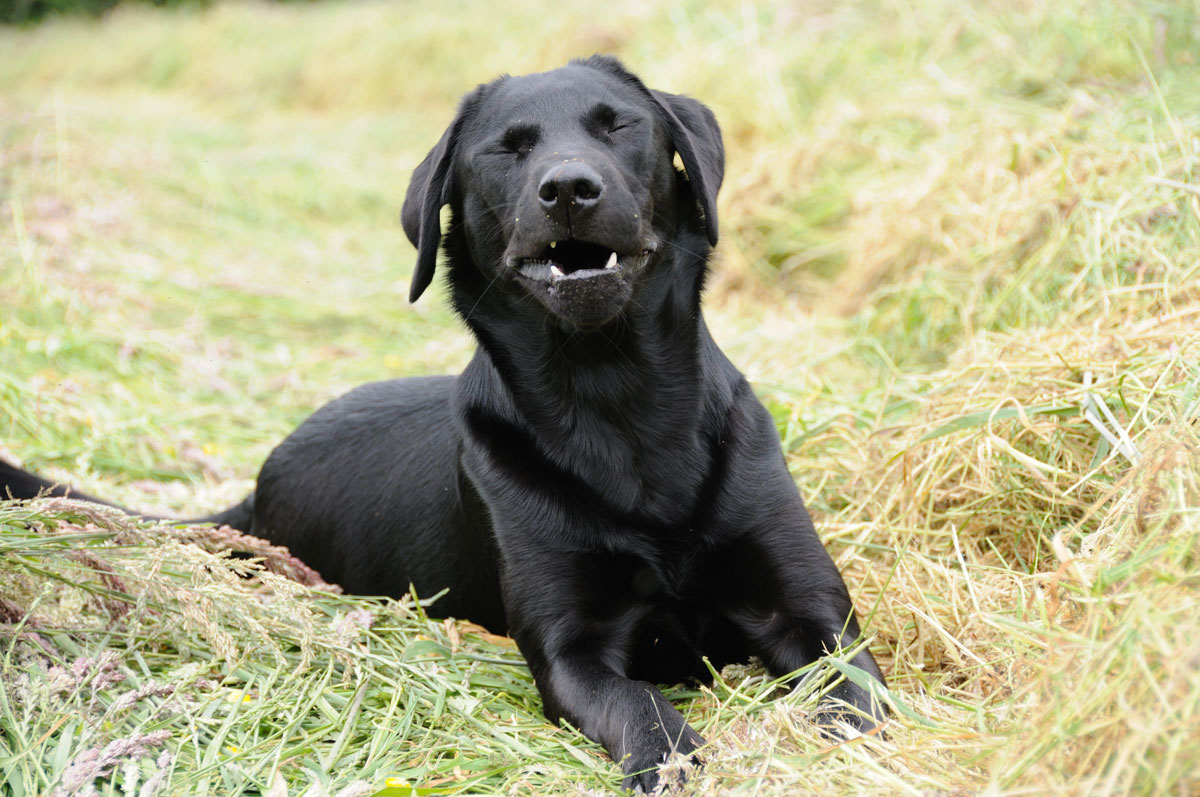 Coughing is one of the most common syndromes veterinarians all around the world encounter during consultations. Coughing in itself is not a disease, but a symptom of something else in your pet. The onset, type of cough, duration and production will help the vet to get to the bottom of what’s going on inside your pet.
Coughing is one of the most common syndromes veterinarians all around the world encounter during consultations. Coughing in itself is not a disease, but a symptom of something else in your pet. The onset, type of cough, duration and production will help the vet to get to the bottom of what’s going on inside your pet.
What is coughing?
Coughing is an audible, forceful expelling of air from the lungs usually in an attempt to clear the airways. Forceful expulsion of air should follow forceful inhalation for the whole action to qualify as a cough. A cough is actually a protective reflex of the body, which signals the presence of an underlying condition. Coughing is generally classified into two main categories namely a wet/productive cough or a dry/non-productive cough. A wet cough is one in which there is an accompanying fluid or mucous discharge seen with each episode; while a dry cough has no discharge or fluid.
What can cause a cough?
Just as there are many different causes of a cough in humans, so too are there myriad reasons why your pet would cough. To get to the cause, it helps to identify the area of the cough, whether it is an upper or lower respiratory cough, and/or a result of other causes outside the respiratory tract.
The upper respiratory tract includes the nose, the sinuses and into the pharynx and the windpipe (or trachea). The lower respiratory tract involves all parts of the airways hidden in the chest cavity. This includes the lungs, which can cause pneumonia, and the smaller branches of the trachea called the bronchi.
Other causes of coughing that are situated outside the respiratory system might involve the heart, oesophagus, chest cavity and other organs like the kidneys.
The most common causes of a cough seen in the vets' practice are heart disease and lung disease. Heart disease causes the heart to stop functioning as it should, which leads to fluid build-up in the lungs. This fluid makes breathing difficult and leads to a cough. Lung disease such as pneumonia is also seen fairly often. There can be many causes – from infection to allergies and even irritation from smoke inhalation. The collapse or narrowing of the windpipe can also be responsible for a cough. Almost like asthma, the size of the airway narrows, making breathing difficult. This can cause irritation and swelling, which leads to a cough, one that sounds frighteningly similar to a honking goose.
Some other common causes of coughing that originate outside of the respiratory tract include swellings or tumours around the neck, which put pressure on the airways. This irritation can lead to coughing.
As you can see, there are many different causes for a pet’s cough – each vet will need to examine and test each case to determine the cause, then implement treatment based on their diagnosis.
How do I know my pet is coughing?
If you notice your pet has repeated episodes of forceful expulsion following forceful inhalation of air, it’s very likely that this is a cough. You will be able to hear your pet doing this as well as see a change in their behaviour. If you see it happening, you may even notice a distinctive pattern of repetition. If you need to, write down everything you observe in your pet, or even better, take a video to show the vet. This may help in reaching a diagnosis.
As obvious as this may sound, owners often confuse coughing with other common syndromes. It can be confused with sneezing, reverse sneezing, and other processes including sinus inflammation, rhinitis, and regurgitation. Coughing and sneezing can actually occur simultaneously or be the result of a similar cause.
When should I be concerned if my pet is coughing?
Just like with people, the occasional cough is not usually something to worry about. A little tickle in the throat or breathing in something irritating will start anyone coughing. It is when the coughing is occurring frequently (more than once a day) that one should be concerned. Even a regular occurrence should be noted and discussed with your vet. If, for example, your pet only coughs once or twice in the evenings, every evening, then this should be investigated.
Coughing from irritation such as an allergy usually starts up fast and can be quite dramatic. On the other hand, coughing related to organ-specific disease, such as pneumonia or heart failure, may start slowly and increase over time. Owners often notice their pet’s breathing rate and effort increasing before the pets begin coughing hours to a day later.
What can I expect when I get to the vet?
The doctor will require a detailed history of the cough: when it was first noticed, how it progressed, and whether more than one animal in the household has been affected. Kennel cough, for instance, is highly infectious, so if there are multiple pets in the household, it’s possible they would all get infected. This information is invaluable to the vet as it helps them in reaching the correct diagnosis.
Once the lightbulbs in a particular path of investigation are lit, the doctor will usually order a number of diagnostic tests depending on the nature of the cough, in order to get to the bottom of the case. The tests can be as simple as listening to the lungs with a stethoscope and tactful palpation on the animal’s body, to as complicated as blood tests, x-rays, swabs and culture. In more complex cases your vet may recommend trans-tracheal washes and aspirates, and/or invasive procedures such as using a scope to have a look at the pharynx, trachea and lungs. In some instances, the veterinarian may recommend thoracic ultrasound examination to rule out heart disease. The use of CT scans may be necessary on rare occasions.
How is a cough treated?
Cough in itself is managed and not treated. It is the underlying cause that doctors will focus on, and when the cause is managed correctly, the cough should be resolved.
First and foremost, physical resting of the patient will be enforced – either at home if possible or they will be admitted to hospital. Depending on the type of cough, the vet may prescribe bronchodilators (to open up the bronchi), coughing suppressants (if the coughing itself hurts the pet), and medications to break down the sputum (if it’s a wet cough).
If the lungs are full of water, drugs to increase the elimination of the water will be used, but only administered with extreme caution. The vet will only perform surgery if the pet’s trachea has collapsed or if they need to remove a foreign body or a tumour.
Patient follow-up after the initial consultation and treatment is important, and will often include follow-up radiography to reassess previously observed lung patterns or to rule out tumours.
Can coughing and its causes be prevented?
If the cough was caused by an infection, it can be prevented from happening again (or to other animals) by vaccinating all pets, employing basic hygiene and using prevention strategies. For conditions where vaccines are available such as kennel cough, pet owners are encouraged to visit their vet and have their pets vaccinated as a means of prevention.
Once a diagnosis of an infectious condition has been reached, the sick pet/s need to be isolated to prevent any other pets from being infected too. Proper disinfection and ventilation of the pet’ environment and food bowls will also help to lower the rate of new infections. Pets must be housed in environments free of excessive dust and toxic gases. This also means that your pets shouldn’t be around smokers, especially in poorly ventilated areas.
Recently, with the appearance of new diseases like the novel coronavirus (Covid-19), pet owners are encouraged to avoid unnecessary contact with their pets – particularly cats – if they or anyone else who has contact with their pets, have tested positive for Covid-19. Until they are tested negative for Covid-19, any contact such as kissing, carrying and touching of pets with contaminated and unwashed hands must be avoided.
Are there any home remedies useful when a pet coughs?
Since coughing is an indicator of a serious underlying condition, it’s best to take your pet to the vet and seek out urgent vet care. The use of home remedies should never be done without veterinary consultation. Many home remedies that we use on ourselves and our families can be severely toxic to animals. This is especially true for very young or very old pets whose immunity may be compromised.
Coughing is a perfect example of when erring on the side of caution is the wisest thing to do!
© 2021 Vetwebsites – The Code Company Trading (Pty) Ltd


